Ditch Your Landlord? Lease or buy, location is king

Not too long ago, Cyril Thomas, a restless entrepreneur with a background in healthcare and consulting, was casting about for a new challenge. He found it in the restaurant industry.
In 2018, Thomas became The Toasted Yolk Cafe’s first franchisee. His Katy, Texas, restaurant had been in operation for two years when he opened a second Toasted Yolk 20 miles to the north in Cypress. A third location is currently under construction, with a fourth to follow.
While Thomas plans to stick with the Toasted Yolk brand, there will be something very different about the two cafes that have yet to open. For those, he’s decided to ditch landlords. Cyril Thomas, lessee, will become Cyril Thomas, lessor.
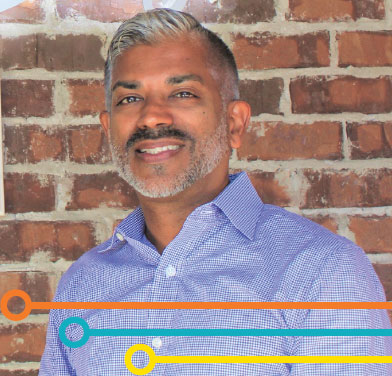
It’s a decision many franchisees have wrestled with: To lease or buy the space they need? The right answer depends on who’s asking the question, and when.
For Thomas, building equity in an asset made more sense than forking over rent money to someone else. “After you lease the 5,000-square-foot space and you continually are writing checks for $20,000-plus, you’re thinking, ‘Wow, that’s a lot of eggs,’” he says.
Still, Thomas and others are quick to point out that not every franchise operator can—or even should—come to that same conclusion.
For franchisees deciding whether to own or lease their space, there are pros and cons to each scenario. Leasing means lower up-front costs and less capital tied up, which can enable franchisees to grow the number of units they have more quickly. There also are more leasing options available—often at the most desirable commercial sites—which increases the chances of finding prime locations that best match an operator’s needs.
The flip side is that lease payments go on forever, meaning a site can cost more in the long run. While buying real estate requires putting up significantly more money initially, franchisees are paying for space they’ll eventually own. It’s an asset that can appreciate in value. And there are tax breaks for interest and depreciation.
Franchisees who have chosen the ownership route say they also are buying themselves some peace of mind, knowing their rents won’t increase and that they won’t have to depend on someone else if property improvements are needed.
Issues to consider
If you can do it, why not do it? That was his thinking when Thomas decided to buy land in Richmond, Texas, construct a retail strip center, and lease to himself. Finding the right location presented a challenge, however.
“The more developed an area is, the harder it is to find a really good piece of land,” he says. “If I wanted to go and lease, there are lots of developed strip centers out there ready to be leased.”
It took about six months to settle on a piece of property, followed by a multitude of permits and licenses to secure while dealing with engineers, architects, builders, and inspectors.
“Building has its own set of issues and a completely different timeline,” Thomas says. “We were supposed to open in 2023—not gonna happen. We have to push it to 2024 just because the process is a little bit longer than anticipated.”
Once it is up and running, Thomas will be able to take advantage of what many say is a potential benefit to franchisees able to buy more space than they need. He’ll lease out the extra square footage, creating another source of income. His restaurant will occupy 4,500 of the 12,000-square-foot development. “The plan is that the strip center is big enough that it can produce enough revenue so other tenants cover the note payment,” he says.
He’s also looking at the long term. “I’ll be able to sell the strip center for probably four to five times what it cost me to build it,” he says. “That’s an incentive for me because I know if it takes me $1 million to build it, once it’s fully leased out, I could probably sell it for $3 million-plus, including the land value.”
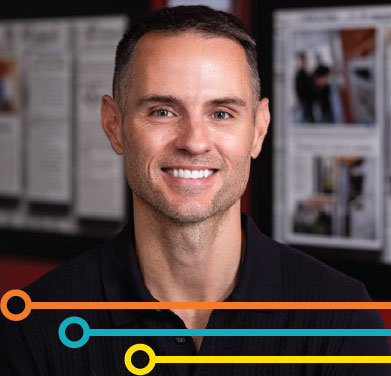
Location is everything
Dustin Mullis’s company, Coup Management, owns the real estate for four of its metro Atlanta Zaxby’s restaurants, as well as for one under construction. At its two other Zaxby’s locations, the company secured ground leases. The brand’s popularity prompted his decision to look for land in relatively underdeveloped areas.
“Zaxby’s is a very hot brand. It’s very difficult to buy stores, especially good stores, in a core market. The metro Atlanta area stores often go very quickly, and they go for very high dollars,” he says. “There weren’t a lot of opportunities to buy, so we just decided to go the ground-up route, acquire our land, and build our sites.”
Mullis sees clear advantages to buying the property instead of leasing it. “On the sites where I own the real estate, I’m paying myself rent. So I’m on both sides of the equation,” he says.
However, he continued, there are definitely times when the better decision is to lease. “Sometimes, people make a mistake and will choose an inferior site to be able to own it,” he says. “My opinion is that the bread and butter come from the operation of the restaurant; it comes from my day-to-day sale of chicken tenders. So you should always choose the best piece of real estate. If that piece of real estate can be bought, great. But the right decision, as a restaurant operator, is to always choose the right site, regardless of owning it or leasing it.”
For franchisees looking to add units and expand quickly, owning might not be the best route, says Mullis. “If I’m going to buy a piece of real estate, it’s going to take a lot more of my money in the deal versus leasing,” he says. “So the best use of capital is something you have to weigh out. But I certainly think with all that factored in, I prefer to own the real estate. I’d rather be the landlord. I’d rather control both sides of the equation so that protects me on downside risks.”
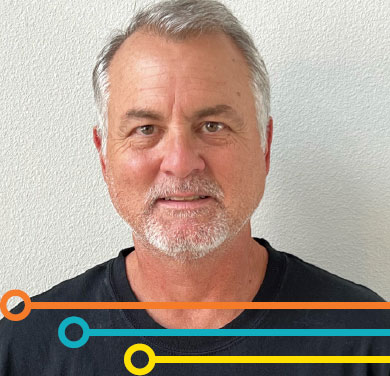
Financial benefits of owning
Steve Kulawik and his wife, Stefani, built their first Children’s Lighthouse Learning Center in 2006 in San Antonio. In the ensuing years, they opened another two in the area and later sold one of them. In September, they were in the midst of negotiating a land deal for another center.
The franchisor’s support has allowed them to have the type of childcare facility they envisioned. In fact, they say, they couldn’t be happier that they signed with Children’s Lighthouse instead of taking the mom-and-pop route they initially thought they would. Now, Kulawik says the real estate their childcare franchises sit on has become an important part of their long-term goals.
“We thought that the real estate portion would be a good investment, along with the business, of course,” he says. “So leasing never really entered our minds.”
The land they’ve purchased is in the northern part of San Antonio, an area of tremendous growth. “When we were looking, one of the things we considered was where would this area be in 5 years, 10 years?” he says. “For instance, our second Lighthouse we built was in an area where there was nothing really around us at the time. It was up-and-coming. Fast forward 14 years, and it’s the fastest-growing area in the entire San Antonio metropolitan area. So once again, the foresight about the investment in real estate was a good play.”
That acumen paid dividends when they decided to sell one of their three centers. They made more money on the land than on the business, Kulawik says.
For a while, they did lease a Lighthouse before deciding to buy it. Never again, says Kulawik. “You’re responsible for the maintenance, the property taxes, the insurance, and then, of course, the lease payment,” he says. “It was exponentially higher than what our note payments were on the building that we owned. I didn’t like the arrangement. It wasn’t efficient. If we wanted to do some remodeling or updating, it didn’t feel right putting money into somebody else’s property. In fact, at one point, I actually went and protested the landlord’s property taxes because I’m the one who had to pay them.”
Today, Kulawik has no doubts that, despite the up-front costs, there are more financial payoffs down the road if franchisees can afford to buy their space. If nothing else, the tax benefits and long-term gain both are better, he adds.
“When you lease a building, your rent is 100% deductible. At the same time, you’re not getting the equity that you’re putting in,” he says. “If you own the building, you don’t get to write off the entire note payment, just the interest portion. However, it should be depreciating, and that depreciation can be a great deal more than the lease payment that the other guy is getting to deduct.”
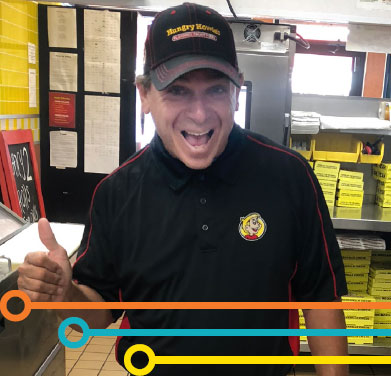
Experience is key
Patrick Shannon wanted the control that came from buying instead of leasing. Once he and his partners started expanding—going from their first Hungry Howie’s pizzeria to six in Michigan and Ohio, with three under contract—the benefits became even clearer. While they can’t purchase the strip malls that some of their Hungry Howie’s stores are in, they try to buy sites whenever practical.
“Our first store opened in Milan, Michigan, in ’96. We rented, like most people do,” Shannon says. “After the first 5 years, the landlords weren’t fixing up the building, weren’t doing anything to it. They decided we were doing so well they wanted to raise our rent. We got to 10 years, and they were going to try to do it again. We said, ‘You’re either going to sell to us or we’re moving out.’” They ended up buying the building.
Their next land purchase was an old bank. It needed extensive renovations to convert it into a pizzeria, but they knew it was the right location.
“We built this amazing-looking building,” Shannon says. “The first week open, we set national records for sales. So, again, we knew what we were doing. We’ve had great success. It was our first store where we put in a drive-thru. That was another key thing, too, for being where we’re located. We get parents who don’t want to get out of their cars because they have their kids in there. The drive-thru was another reason we picked that building.”
One of their owned sites has three tenants. Shannon doesn’t consider that ideal, although he knows some would love to be in that situation. “For me, specifically, I don’t really want to be a landlord. I don’t want to have to deal with all these other issues,” he says. “However, that was the only way we were going to buy this building. It just made sense to do it.”99
Although it’s worked out well for him and his partners, Shannon says, some people should not look to buy property, especially new franchisees. “If you don’t have experience going into it, if this is your first thing, you’re putting up a lot of money,” he says. “If your business is failing, you have this building that you can’t make payments on. I would never recommend that to anybody just getting into business.”
Some have questioned whether Shannon and his partners should be buying land and building instead of continuing to lease at some of their locations. However, he points out, he’s learned a thing or two during his time in the restaurant business, especially since that first restaurant in Milan.
“We’re actually building two buildings now from the ground up. People tell me, ‘Hey, what if you fail?’ Well, I’ve been in pizzas for 39 years. It’s very unlikely that I’m not going to succeed,” he says. “But that brings us to purchasing locations. Before, it would have been we’d just find a location that was available and take it. Now it’s, ‘Let’s find the right location, and let’s buy that location.’”
Share this Feature
Recommended Reading:
Comments:
comments powered by Disqus| ADVERTISE | SPONSORED CONTENT |
FRANCHISE TOPICS
- Multi-Unit Franchising
- Get Started in Franchising
- Growth
- Operations
- Open New Units
- Leadership
- Marketing
- Technology
- Legal
- Awards
- Rankings
- Trends
- Featured Franchise Stories
FEATURED IN
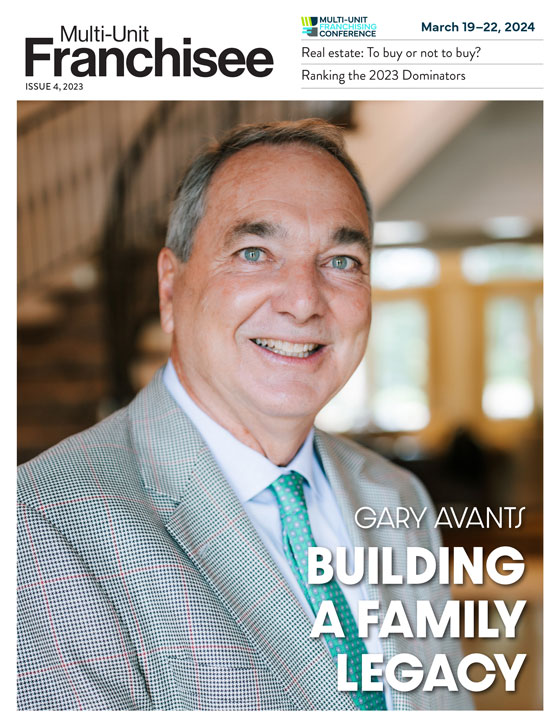
Multi-Unit Franchisee Magazine: Issue 4, 2023
| ADVERTISE | SPONSORED CONTENT |
$100,000




 The multi-unit franchise opportunities listed above are not related to or endorsed by Multi-Unit Franchisee or Franchise Update Media Group. We are not engaged in, supporting, or endorsing any specific franchise, business opportunity, company or individual. No statement in this site is to be construed as a recommendation. We encourage prospective franchise buyers to perform extensive due diligence when considering a franchise opportunity.
The multi-unit franchise opportunities listed above are not related to or endorsed by Multi-Unit Franchisee or Franchise Update Media Group. We are not engaged in, supporting, or endorsing any specific franchise, business opportunity, company or individual. No statement in this site is to be construed as a recommendation. We encourage prospective franchise buyers to perform extensive due diligence when considering a franchise opportunity.